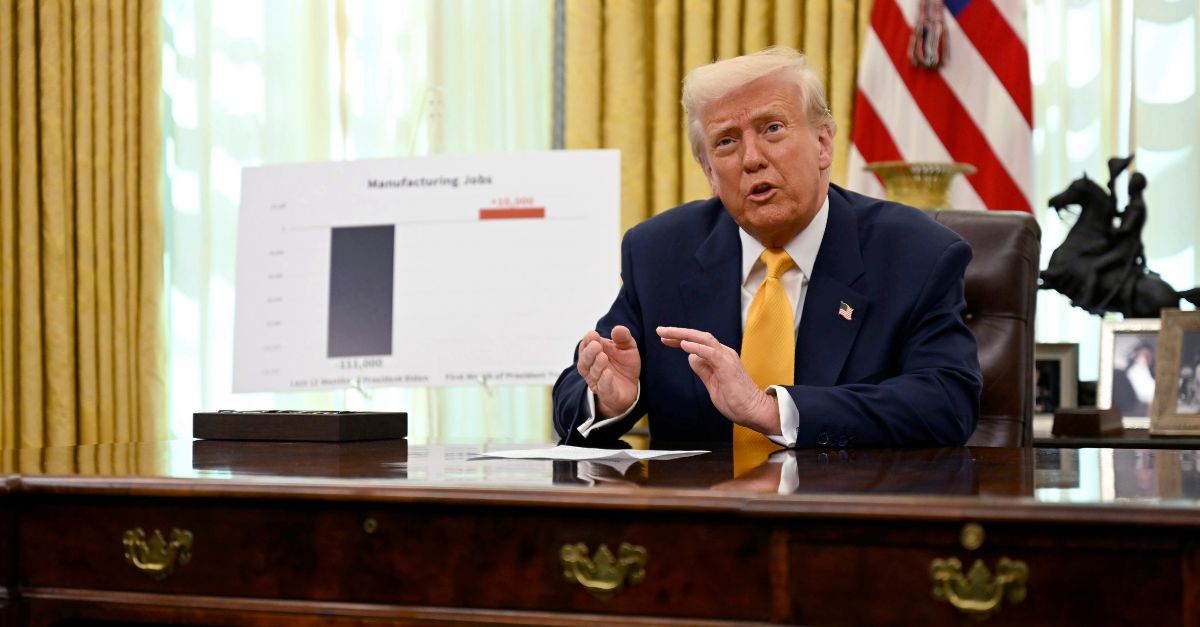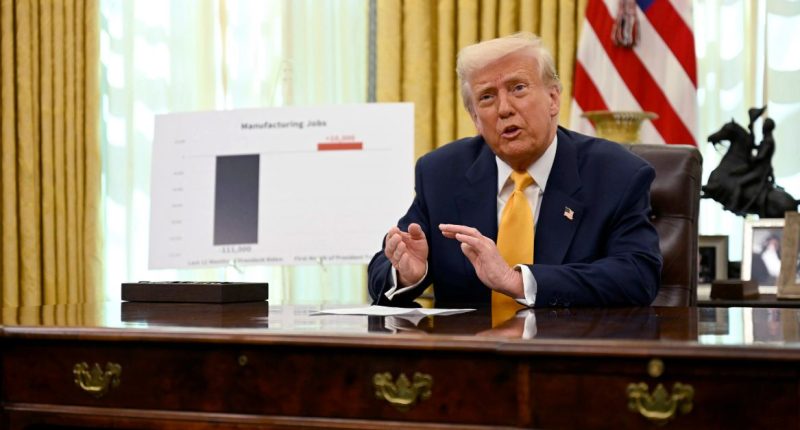
President Donald Trump delivers remarks in the Oval Office of the White House in Washington, Friday, March 7, 2025 (Pool via AP).
The Trump administration is doubling down on its position that the president is empowered to unilaterally impose global tariffs, asserting that his authority to do so is not reviewable by federal judges.
In a 45-page opposition brief, the administration on Tuesday asked the U.S. Court of International Trade to reject a request to temporarily halt the tariffs and grant the government’s motion for summary judgment in a case challenging the constitutionality of president’s actions. The Department of Justice asserted that Trump’s decision to invoke an emergency statute and to implement the levies “are unreviewable” by the judiciary.
The case stems from an April 14 complaint filed by a coalition of businesses referring to the levies as an “unprecedented power grab” and called the president’s gripe with bilateral trade deficits a “figment of his own imagination.”
Love true crime? Sign up for our newsletter, The Law&Crime Docket, to get the latest real-life crime stories delivered right to your inbox.
The plaintiffs alleged that Trump unlawfully imposed the tariffs under an emergency statute in the absence of any actual emergency — an argument reminiscent of challenges to Trump’s invocation of an 18th-century wartime power to conduct mass deportations with little or no apparent due process, despite the fact that the U.S. is not at war.
Trump on April 2 invoked the International Emergency Economic Powers Act (IEEPA), declaring a national emergency and claiming that “persistent annual U.S. goods trade deficits” have threatened military readiness and compromised national security. The act grants the executive sweeping authority to quickly combat international economic crises and permits the executive to order sanctions as a rapid response to international emergencies.
“Plaintiffs argue that IEEPA, even if it authorizes tariffs in some circumstances, does not authorize the challenged tariffs because plaintiffs disagree with the President’s declared emergency,” attorneys with the Justice Department wrote. “But whether a threat is unusual or extraordinary is reviewable only by Congress, not by the courts.”
According to the administration, Congress “designated itself” as having supervisory control over a president’s emergency declarations, meaning the question of whether persistent trade deficits pose a threat to the United States, as Trump asserts, is “beyond the courts’ authority to resolve.”
“The question is not fit for judicial resolution. It is for the political branches to resolve. Indeed, the tariffs at issue are presently being debated in Congress, as designed under IEEPA’s legislative-review component,” the filing states. “Moreover, the equities and public interest cut against enjoining a President from using his foreign-affairs powers to protect the United States’ economy and national security.”







